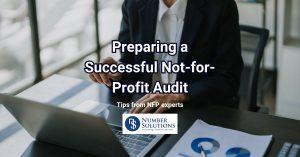» Trust » Ensuring Success in Trust Account Audits NSW
Ensuring Success in Trust Account Audits NSW
Navigating the complexities of trust account audits can be daunting for real estate agents in New South Wales. However, by adhering to best practices and complying with the Property and Stock Agents Act 2002 No 66 and the Property and Stock Agents Regulation 2022, you can ensure a smooth audit process. This guide outlines seven key areas to focus on to achieve a successful trust account audit.
Accurate and Timely Record-Keeping
Recording all deposits and withdrawals daily is fundamental. According to NSW Fair Trading trust account auditor guide rules (section 4.1, 4.3, 5.2), maintaining a balanced cash book with correct transaction details, serial numbers, and amounts ensures accurate trust ledgers and bank reconciliations. Adhering to these practices prevents discrepancies and supports audit compliance. A well-maintained cash book reflects the financial integrity of your agency and helps avoid potential legal issues.
Regular Bank Reconciliation
Timely bank reconciliations, whether weekly or monthly, are essential. NSW Fair Trading trust account auditor guide rules (section 11.1 & 11.3) mandates monthly reconciliation reports signed by both the preparer and reviewer. Address any unreconciled transactions in a timely manner to avoid long-standing discrepancies and maintain accurate financial records. Regular reconciliation helps detect errors or fraudulent activities early, ensuring the trust account’s integrity is upheld.
Supporting Legal Documents
All transactions in a trust account must have supporting legal documents such as agreements, contracts, or engagement letters. This requirement ensures transparency and accountability. For instance, any fees deducted by real estate agents from tenant or vendor accounts must be backed by signed documents between the tenant and agent, as stipulated by NSW Fair Trading. Proper documentation safeguards against disputes and demonstrates your compliance with legal requirements.

Avoid Cash Payments/Receipts and Overdrawn trust Accounts
Accepting cash payments poses significant risks, including potential loss and disputes over unrecorded transactions. Ensure all payments are banked electronically to maintain a clear and traceable financial trail. Avoiding cash payments minimizes the risk of errors and theft, providing a more secure and efficient way to manage funds. Always ensure that your trust account does not become overdrawn, as this can lead to severe penalties and damage to your agency’s reputation.
Utilise Compliant Trust Accounting Software
Employing compliant trust accounting software, such as PropertyMe or MRI Software, streamlines your processes. Automated workflows, easy reconciliation, and digital documentation reduce human error and save time. Integration with platforms like Xero enhances efficiency and ensures a clean digital paper trail for audits. Using such software ensures you are always ready for an audit, with accurate and up-to-date records at your fingertips.
Meet Audit Deadlines
Staying on top of audit deadlines is crucial. For NSW, trust account audits for the year ending 30 June must be lodged by 31 December, extended from the usual 30 September deadline due to the pandemic. Mark your audit periods and due dates to remain accountable and prepared.
- 1 July 2024: Auditor’s Report Online portal opens; auditors can begin to invite clients and submit audits.
- 1 July – 30 September 2024: On-time audit submissions.
- 1 October – 31 December 2024: Audits submitted during this period are classified as late, except with pre-approval; fines may be imposed.
- 1 January 2025: Auditor’s Report Online portal closes for the year; no audits can be submitted online.
Meeting these deadlines is essential to avoid penalties and maintain good standing with NSW Fair Trading.
Choose a Quality Auditor
Selecting the right auditor can add significant value to your audit process. A proficient auditor can provide insights to streamline operations, improve compliance, and enhance record-keeping. If your current auditor falls short, consider recommendations from your network and ensure compliance with NSW Fair Trading regulations when switching auditors. A good auditor not only verifies your compliance but also helps you optimize your trust account management practices.
By focusing on these key areas, you can ensure a successful trust account audit and maintain compliance with NSW Fair Trading standards.
What Number Solutions Tax & Accounting Can Offer
Number Solutions Tax and Accounting offers a quality and effective audit process at an affordable price. Our experienced team ensures thorough and accurate audits, helping you maintain compliance and avoid penalties. Please contact us on 02 9174 5327 or at info@numbersolutions.com.au for a free consultation.
Let us help you achieve a smooth and successful trust account audit.
Related Articles:






